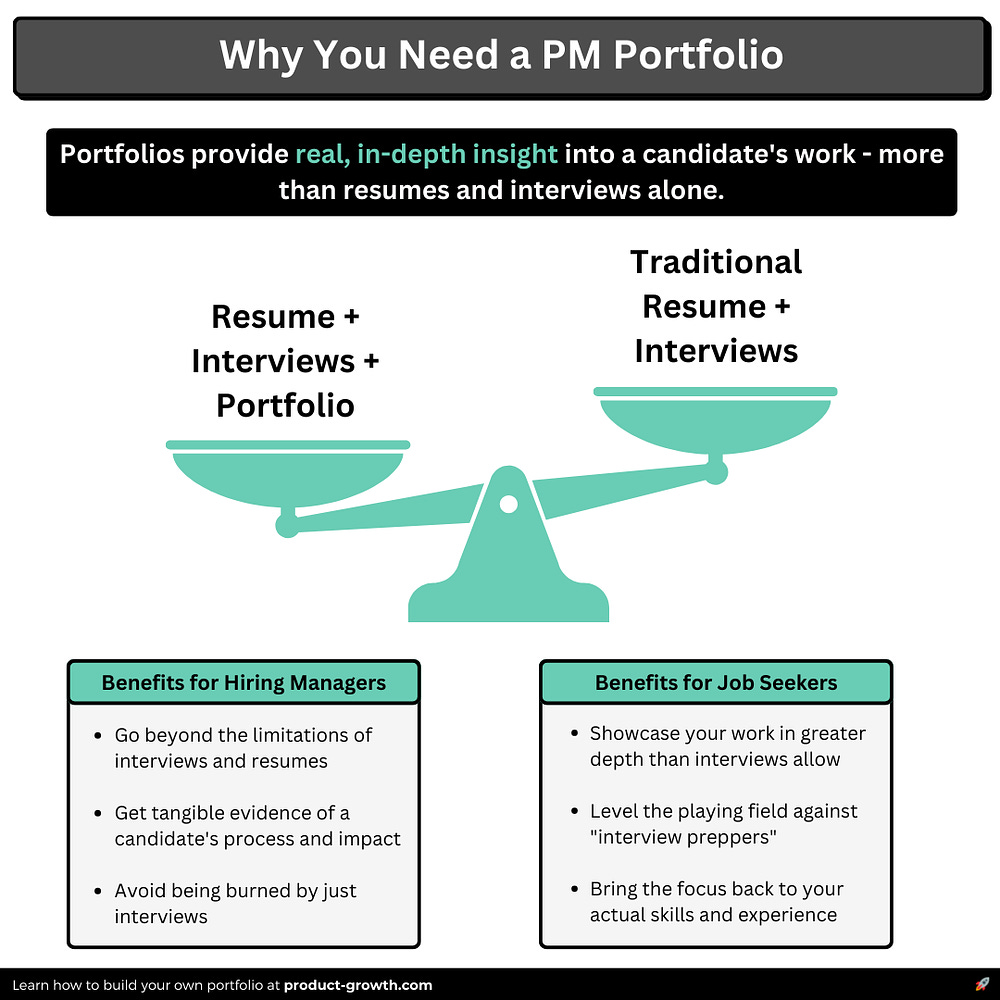Notes
Back in February, I chatted with a VP of Product at a Series C startup. They shared an interesting insight:
"I saw a brand new technique last week. The candidate had a portfolio… like a design portfolio, but for PM.
Mind. Blown. I ended up spending nearly an hour reading her portfolio before the interview and got to know her well.
15 minutes into the interview, I knew she was the PM I needed. And I flipped the interview to a sales call. Fast forward to now, and she’ll be joining the team in a few weeks."
Clearly, portfolios can differentiate you. It was an eye-opener for me.
So I worked with five PMs on the portfolio strategy over the past couple of months. Along the way, I talked to loads more hiring managers.
What I learned only strengthened my belief in portfolios. They are beneficial for both hiring managers and job seekers.
THE HIRING SIDE
Most hiring managers don’t actually believe that much in the tools available to them.
Take interviews, for example. Every seasoned hiring manager has been burned by a candidate who aced the interview, only to underperform on the job.
Resumes? Same story. We've all seen resumes that stretched the truth. In fact, it's a base assumption when reading one:
People claim they drove more of a project than they did.
Impact is easily taken out of context.
Deception is common.
Even references can be deceiving.
As a result, hiring managers are desperate for real information about a candidate’s work outside of their resume, interviews, and references.
That's where the portfolio comes in. You can actually see how PMs do problem and solution discovery, how they manage teams, and the impact they can drive in context.
It's much harder to deceive in a portfolio. Maintaining a consistent narrative is more difficult than exaggerating a few bullet points on a resume.
THE JOB SEEKER SIDE
More and more people are differentiating themselves with their interview prep, instead of their PM work. It's a shame for the actual good PMs out there.
It’s hard to actually sell all the details of your work in an interview or your resume:
In interviews, you typically only spend 2-4 minutes on any given story.
On your resume, you only get to go through a line or two at best for each project.
This is why portfolios are so powerful. You can level the playing field against “the interview preppers,” who are better interviewers than they are PMs.
Some people worry about the time involved. But creating a portfolio helps you go deep on your own stories. So even if no one reads your portfolio, you're better prepared to interview.
THE BOTTOM LINE
Portfolios bring the focus back to the work.
Are portfolios a silver bullet? Of course not. But they are a powerful tool that more PMs and hiring managers should be using.
The results speak for themselves. All five PMs got jobs.
To learn how to put together your own portfolio, check out the deep dive: news.aakashg.com/p/product-manager-port….

Dive into your interests
We'll recommend top publications based on the topics you select.
